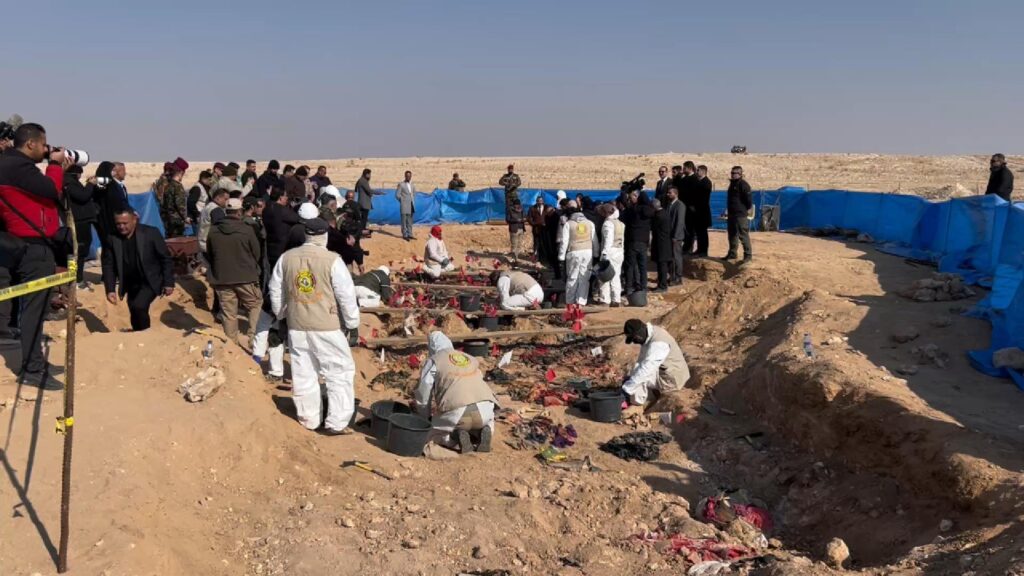Iraq: ISHM: March 12 - 19, 2020

Key Takeaways:
Escalation Between U.S. And Militias Strains U.S.-Iraq Relations; President Salih Names New PM-Designate Amid Strong Objections From Fatah Coalition; New PM-Designate Promises Elections Within A Year – On March 16, Baghdad sent letters to the UN Security Council and UN Secretary General condemning the “misguided American aggression” after retaliatory U.S. airstrikes against militias believed responsible for rocket attacks that killed Americans resulted in casualties among Iraqi civilians and government forces. On March 16, the Saeroun coalition led by Moqtada al-Sadr said that negotiations among the political blocs to agree on a new candidate to form a new government had collapsed, and Iraq’s Supreme Federal Court ruled that President Salih had the “exclusive choice” to designate a new PM in accordance with article 76 of the constitution. On March 17, President Salih tasked former Najaf governor and member of the Nas coalition, Adnan al-Zurfi, with forming a new government. A joint statement by four blocs (Hadi al-Amiri’s Fatah coalition, Nouri al-Maliki’s State of Law block, Falih al-Fayadh’s group and the Fadheela party bloc) said the president’s actions “violated the constitution.” On March 17, protesters in several provinces expressed their rejection for the selection of Adnan al-Zurfi as the prime minister-designate. On March 18, Iraq’s new PM-designate, Adnan al-Zurfi, issued a 12-point statement outlining the priorities of his future government, starting with a pledge to work with the UN to make the necessary preparations to hold free and fair elections within one year. more…
U.S. Airstrikes On Militia Targets Kill Iraqi Soldiers; New Rocket Attacks Strike Camp Taji; Several Militant Attacks Hit Tuzkhormatu – On March 12, an IED killed one member of the Iraqi security forces (ISF) in Diyala. On March 13, several U.S. airstrikes targeted weapons depots connected with Kataib Hezbollah, which the U.S. accuses of conducting a March 11 rocket attack that killed two Americans. The airstrikes also struck a civilian airport in Karbala and killed and injured five members of the ISF and one civilian. On March 14, 33 rockets struck Camp Taji, injuring two Iraqi soldiers and three service members from the international coalition. On March 15, an IED injured one ISF member in Kirkuk. On March 16, an IED attached to a motorcycle wounded seven civilians in Tuzkhormatu district in Salah ad-Din province. The following day, four mortar rounds struck the same district, wounding five civilians. Eight more mortar rounds struck Tuzkhormatu on March 19, injuring two civilians. On March 16, unidentified attackers fired a rocket propelled grenade at the residence of the governor of Basra, injuring one policeman. On March 16, the U.S.-led international coalition said it plans to remove part of its forces that are deployed at small, remote Iraqi bases as part of a plan to “relocate and consolidate” forces in Iraq. On March 17, two rockets struck Basmaya, an ISF training base that also hosts coalition personnel. On March 17, two IEDs killed two ISF members and injured two civilians in Diyala. On March 17, an IED injured one soldier southeast of Mosul. On March 18, two rockets struck near the Green Zone in Baghdad, injuring two civilians. more…
Iraq Expands Travel Restrictions, Struggles To Enforce Curfews To Contain Covid-19; Amnesty Finds New Evidence Of Deliberate Killing Of Protesters; Floods Threaten Many In Northern Iraq – On March 13, Iraq added Germany and Qatar to a list of eleven countries from which travelers are not permitted entry to the country to guard against further spreading of the coronavirus. Iraq also decided to suspend all flights for one week starting March 17. On March 15, the government ordered a nighttime nation-wide curfew for one week starting on March 17. The Minister of Health urged security authorities to be strict in enforcing the curfew, noting that many vehicles and pedestrians were still on the streets, and many shops remained open in defiance of government orders. On March 18, the KRG decided to extend a two-day total curfew that was imposed on March 13 for an additional five days. On March 19, the Ministry of Health said there were 177 confirmed cases of the coronavirus and 12 deaths. On March 17, Amnesty International shared the results of a new investigation based on 3D analysis of footage that it said proves that Iraqi government forces “intended to kill or severely maim” protesters using military grade teargas canisters. On March 19, the Iraqi High Commission for Human Rights said recent flooding has caused serious damages and displaced “a large number of people” in central and northern Iraq, including a number of IDP camps , urging the federal government and the KRG to provide emergency assistance. more…
Foreign Workers Evacuated, Production Halted At Gharraf Oilfield; Iraq Seeks Emergency OPEC+ Talks To Stop Oil Price Decline – On March 17, Iraq’s Oil Ministry decided to halt production at the 95,000 bpd Gharraf oilfield in Dhi-Qar after the field’s operator, Malaysian oil company Petronas removed its staff as a precaution against the coronavirus. On March 16, the governor of Iraq’s central bank said the country’s total debt, excluding money owed to creditors before the regime change 2003, stood at approximately $64 billion. On March 17, Reuters said Iraq’s Oil Minister sent a letter to OPEC’s secretary requesting an “emergency meeting” that brings together OPEC members and major non-OPEC producers to “discuss all possible ways” to support flagging oil prices. The head of the International Energy Agency warned that at current prices, government revenue could drop to as little as $2.5 billion a month, compared with $6.2 billion in January. more…
For more background on most of the institutions, key actors, political parties, and locations mentioned in our takeaways or in the stories that follow, see the ISHM Reference Guide.

